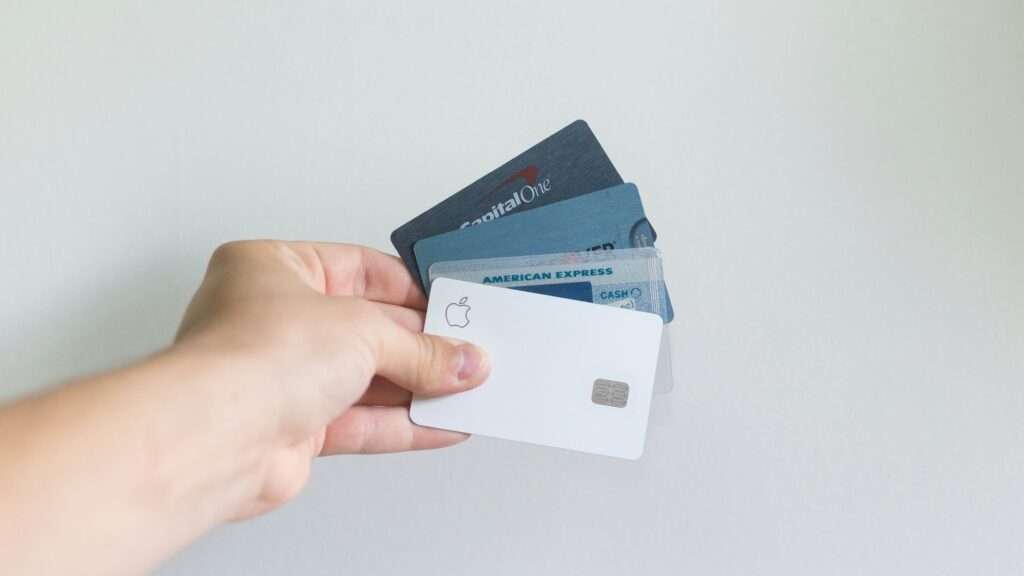The day I graduated from college, I came out with a Bachelor of Music, an eagerness to hit the real world—and not an ounce of debt. Don’t get me wrong. Like caffeine, cold medicine, and laxatives, student loans can be a blessing when used judiciously. But when you consider the crippling debt many young people start their careers with, why not aim for bypassing them altogether?
In my last post 4 Steps to Money Management For Young Christians, I discussed the basics of Christian money management, leaving out all discussion on debt. That’s because debt is so serious a topic—especially for college students—it deserves its own attention.
The fifth principle of financial literacy for Christian teens, which I talk about here, is avoiding debt. And before you ask, yes, it’s entirely possible to avoid debt in college.

Hey, I’m Lauren, author of YA Christian fiction and
blogger for teens ready to level up in faith.
Subscribe for inspiring content and free YA ebooks!
In This Article
Look at Debt With Both Eyes Open
Whoever loves money never has enough; whoever loves wealth is never satisfied with their income. This too is meaningless.
Ecclesiastes 5:10
You can have both God and money but you cannot serve both. Yet in our modern culture, taking out a loan or racking up credit card debt is as accepted as owning a smartphone and drinking coffee. I want to challenge that viewpoint right now. Let’s look at debt for what it really is: Debt means we think we need more than God has given us.
Debt means we think we need more than God has given us.
Sale rack jeans aren’t good enough, I need $69 Levi’s 711 Skinny Fit jeans. Get out the credit card!
But debt of any kind is a harsh master, so harsh that in Biblical times, someone could actually be sold into slavery over it. Today isn’t much different but instead of being sent to debtor’s prison, those who have heavy debt must slave away to conquer it, and some never do. Avoiding debt altogether is the only way to do it.
Avoiding Debt Means Not Falling for the Lure
I can’t say this enough: If you are young and new to the world of money and spending, don’t fall into debt!
Save your pennies, catch a ride with friends. Use public transportation and save up to buy your first car with cash. (It probably won’t be the sexiest model but it will get the job done. My first vehicle was a Buick Skylark with a crackly radio and questionable brakes. When I totaled it in a rollover, I walked away—yes, walked—without the debt of a dead car hanging over my head.)
Credit Cards: Pretty Plastic or Vicious Monster?

Statistics show that if you have a pretty piece of plastic in your wallet or purse, you will make the credit card companies lots of money—in the form of high interest charged on unpaid balances. Credit cards are a necessity in today’s electronic shopping environment. But that doesn’t mean you have to become a money-maker for a company that does not have your best interests in mind.
TEENAGER BEWARE: You are the #1 target of credit card companies.
In his book, Managing God’s Money, Randy Alcorn lays out a few rules for using credit cards:
- Never use your credit cards for anything except budgeted purchases.
- Pay your balance in full every month.
- The first month you have a credit card bill that you cannot pay in full, cut the card in half and don’t get another one.
Some people cannot resist the temptation that credit cards present. If you are one of those people, you should not own a credit card. Don’t give the monster a chance to rule over you.
Christian Money Management Tip: These days, debit cards linked to your bank account function like credit cards without putting you into debt. If you can’t resist overloading your credit card, get one of these instead!
How I Made it Through College Without Student Loans
Maybe you were told that you need a student loan to go to college but student loans have sunk an ungodly number of young people right out of the chute. Why risk it?
You can do college without student loans. Here’s how I did it.
1) Save, save, save.
“The plans of the diligent lead to profit.” Proverbs 21:5
The second I got my first paycheck from my first job, I started a budget. Without responsibilities like rent, an electric bill, or groceries, it was fairly simple. I kept track of what I made and what I spent, and made sure the latter never bested the former.
You’d be surprised how quickly unchaperoned money can disappear. A night at the bowling alley with friends, pitching in for a pizza delivery, a new Christmas dress, basketball shoes, stops at the vending machine … All these things add up. But with a budget, you know exactly where your money is going at all times—and maybe you’ll keep it home a little more.
2) Scholarships, scholarships, scholarships.
“God will meet all your needs according to the riches of his glory in Christ Jesus.” Philippians 4:19
You know all those $500 scholarships on the list your high school guidance counselor gave you? You might be tempted to think, “Pfft. What’s $500 gonna do? I need $30,000 just for one year!”
But then you’d be forgetting simple math.
Five hundred dollars multiplied by n equals … a lot more. I applied for every scholarship I was eligible for and, in the end, scholarships paid the largest chunk of my tuition bill. So fill out those applications!
3) I took my ACT—twice.
“But remember the Lord your God, for it is he who gives you the ability to produce wealth.” Deuteronomy 8:18
Not that my first score was anything to cry about but the college I went to offered a tiered four-year scholarship based on your ACT grade. The two extra points I gained the second go-round earned me another $2,000 or so a year. If you ask me, that was a Saturday morning well spent.

4) I signed up for financial aid.
“All who are prudent act with knowledge.” Proverbs 13:16
Financial aid offices are always talking about FAFSA, blah, blah, blah. But don’t ignore them. This tedious application can help you knock a lot of money off your college costs, particularly if you come from a low-income family. And you don’t have to be at poverty level to benefit.
5) I worked a job throughout my college career.
“The desires of the diligent are fully satisfied.” Proverbs 13:4
Light hangs, set building, monitoring stage right, working the sound booth, setting up tables and chairs, crowd management for performances … These are some of the many tasks I performed in my work-study position as a theater hand during my first two years of college. Then I moved into a job at the campus library and completed an overhaul of our musical score collection.
The point is, I worked. And during summer breaks, I worked even harder, waitressing and housekeeping jobs. Since I was still living at home, all that money went toward school (another money-saving technique for good Christian money management!).
6) I didn’t own a car.
“But godliness with contentment is great gain.” 1 Timothy 6:6
I didn’t own a car—at least not for the first three years. Cars are not cheap. Even if you buy a cheap car, like my ‘94 Skylark, you still have to pay for insurance and registration, tires, repairs, parking, gas…
Honestly? Carpooling is a great way to spend time with friends.
7) I accepted help.
“I always thank my God for you because of his grace given you in Christ Jesus.” 1 Corinthians 1:4
I won’t lie. My parents paid a small portion of my tuition and I accepted it with gratitude. If you are lucky enough to have someone who has stashed away any amount for your college education, please thank them!
How to Avoid Debt In College: Something Else to Consider
“Honor the Lord with your wealth…” Proverbs 3:9
The university I attended cost about $30,000 a year in my time. (It’s more now.) I could have chosen a state school for half the price, and you might consider this as well. HOWEVER… Don’t overlook a university just because it’s expensive. Some of the most expensive schools have the best scholarship offerings and financial aid packages so you end up paying the same as a cheaper school.
But it’s still out there: There’s a wide price range between colleges. If you are expecting to foot a lot of the bill yourself, seek one with a lower sticker price. This is one area where a higher price isn’t always indicative of high quality.
For an in-depth look at avoiding debt in college, check out How to Pay For College Without Student Loans on Dave Ramsey’s site. Dave Ramsey is a great resource for anyone looking to improve their financial literacy!
Is Debt Ever Okay?
One exception to the no-debt rule is the purchase of a house. Unlike rent paid for an apartment, the money you put into a mortgage should come back to you when you sell, and then some. That’s why home ownership is considered an investment.
Since this post focuses on financial literacy for Christian teens, I won’t go into details here. (Most of you have a few years before this is a possibility, though weirder things have happened than a teen owning a home!) But it’s something to keep in mind for the future.
Always remember, God is big enough to provide for you. Avoiding debt is possible when you look to him for everything!
More Resources For Christian Teens

You don’t have to have all the answers.
but, hey, why not?
Bring me your questions about faith, life, God, the Bible… and I’ll help you find the answers.
Are you serious about avoiding debt and staying on top of your finances? Consider a lifestyle of minimalism. The less stuff you have to buy, the easier it is to stay out of the red! Check out my posts on minimalism:
- Why Christian Teens Should Embrace Minimalism
- 4 Steps to Minimalism for Christian Teens
- The Magic of Digital Minimalism: What Happens When You Put Down Your Phone